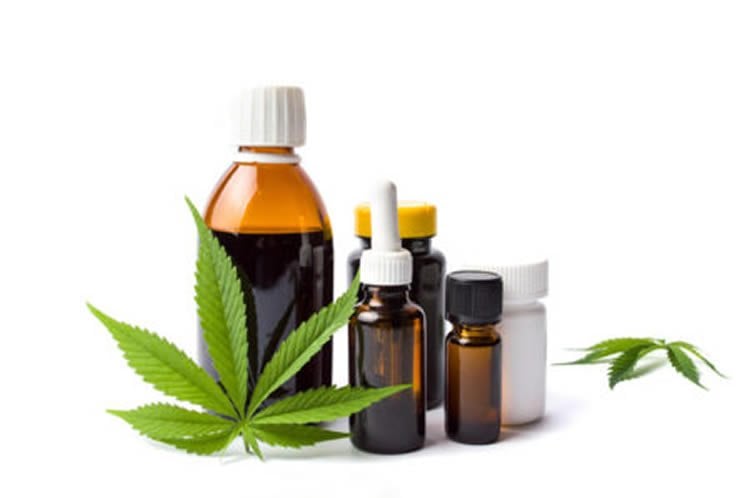Summary: A new study reveals CBD oil may help to reduce, or even eliminate seizures, in those with epilepsy.
Source: Vanderbilt University.
About one third of patients treated for epilepsy continue to have seizures. Cannabidiol (CBD), one of the many active compounds in the cannabis (marijuana) plant, has gained attention as a treatment for epilepsy. Purified CBD is being tested, but artisanal formulations of CBD (oils) are already available and being used by patients.
To evaluate the efficacy of artisanal CBD for patients with epilepsy, Robert Carson, MD, PhD, and colleagues performed a retrospective study of medical records obtained from Vanderbilt’s BioVU resource.
They found that among 108 pediatric patients with epilepsy, 39 percent who added CBD oil to their treatments experienced a 50 percent reduction in seizures, 10 percent became seizure-free, and 22 percent were able to decrease doses of other anti-seizure medications.
The findings, reported in Epilepsy & Behavior, support the efficacy of CBD oil for seizure reduction with few side effects. The authors suggest caution for patients who use unregulated natural products, such as artisanal CBD, and advise clinicians who treat epilepsy to actively inquire about CBD use.

Funding: The datasets used for this research were obtained from Vanderbilt University Medical Center’s BioVU, which is supported by institutional funding and by the National Institutes of Health (grants RR025141, TR000445).
Source: Leigh MacMillan – Vanderbilt University
Publisher: Organized by NeuroscienceNews.com.
Image Source: NeuroscienceNews.com image adapted from the Vanderbilt University news release.
Original Research: Open access research in Epilepsy & Behavior.
doi:10.1016/j.yebeh.2018.01.026
[cbtabs][cbtab title=”MLA”]Vanderbilt University “Cannabis Compound Reduces Seizures.” NeuroscienceNews. NeuroscienceNews, 27 February 2018.
<https://neurosciencenews.com/cannabis-compound-seizures-8569/>.[/cbtab][cbtab title=”APA”]Vanderbilt University (2018, February 27). Cannabis Compound Reduces Seizures. NeuroscienceNews. Retrieved February 27, 2018 from https://neurosciencenews.com/cannabis-compound-seizures-8569/[/cbtab][cbtab title=”Chicago”]Vanderbilt University “Cannabis Compound Reduces Seizures.” https://neurosciencenews.com/cannabis-compound-seizures-8569/ (accessed February 27, 2018).[/cbtab][/cbtabs]
Abstract
Efficacy of artisanal preparations of cannabidiol for the treatment of epilepsy: Practical experiences in a tertiary medical center
Medically refractory epilepsy continues to be a challenge worldwide, and despite an increasing number of medical therapies, approximately 1 in 3 patients continues to have seizures. Cannabidiol (CBD), one of many constituents of the Cannabis sativa or marijuana plant, has received renewed interest in the treatment of epilepsy. While highly purified CBD awaits Food and Drug Administration (FDA) approval, artisanal formulations of CBD are readily available and are seeing increased use in our patient population. Although randomized controlled trials of CBD are ongoing and promising, data regarding artisanal formulations of CBD are minimal and largely anecdotal. Here, we report a retrospective study to define the efficacy of artisanal CBD preparations in children with epilepsy. Given the known interaction between CBD and clobazam, we also conducted a subgroup comparison to determine if clobazam use was related to any beneficial effects of CBD. Additionally, we compared response rates with CBD and with clobazam alone within an overlapping patient cohort. A pediatric cohort with epilepsy of 108 patients was identified through a medical record search for patients using CBD oil. The addition of CBD resulted in 39% of patients having a >50% reduction in seizures, with 10% becoming seizure-free. The responder rate for clobazam was similar. No patients achieved CBD monotherapy, although the weaning of other antiepileptic drugs (AEDs) became possible in 22% of patients. A comparable proportion had AED additions during CBD therapy. With concomitant use of clobazam, 44% of patients had a 50% reduction in seizures upon addition of CBD compared with 33% in the population not taking clobazam; this difference was not statistically significant. The most common reported side effect of CBD was sedation in less than 4% of patients, all of whom were also taking clobazam. Increased alertness and improved verbal interactions were reported in 14% of patients in the CBD group and 8% of patients in the CBD and clobazam group. Benefits were more marked in the CBD alone group, in contrast to the CBD and clobazam group, but this difference was not statistically significant. In summary, these findings support efficacy of artisanal CBD preparations in seizure reduction with few significant side effects. The response to CBD was independent of concurrent clobazam use, although clobazam may contribute to the sedation seen with concurrent CBD use.






